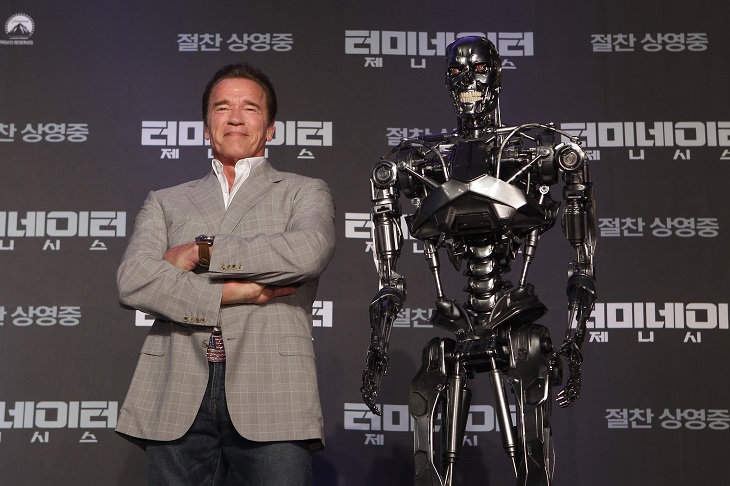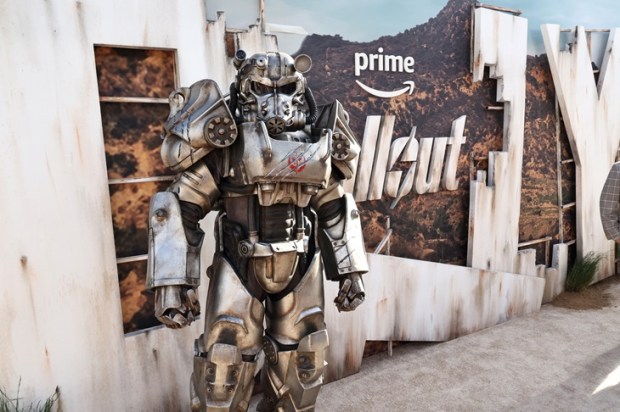With technology developing ever faster, a new threat is looming in the form of Artificial Intelligence (AI) potentially interacting adversely with humanity.
The concept of surveillance leading to societal control remains a future threat. For now, the immediate concern is the impact AI poses to employment. Should we take, for example, the current US strike by Hollywood’s writers and actors as a sign of things to come?
There is unease about the direction of AI. On one hand, some are worried this technology could become controlling, and on the other there is a fear Australia might be left behind in the technology race in what could be our FOMO moment (fear of missing out).
Compounding this problem, the exponential rate of AI development means that regulation is lagging in the same way it has done so with social media, cryptocurrency, buy now/pay later, data storage, facial recognition, and other modern technology developments. What is clear is that the effect on employment will be enormous; productivity will improve, but at what social and financial cost to individuals?
The European Union has put forward draft AI legislation on such topics as biometric surveillance in public places, content collection, and predictive policing. The inevitable problem will be that, as is already the case in other industries, ‘bad actors’ can circumvent regulations while the development of advanced new AI tools will be slowed. Even at this early stage Geoffrey Hinton, who is one of the ‘godfathers of AI’, has ominously hinted that mitigating the risk of human extinction from AI should be a priority.
Forward thinkers have tried to warn us about potential AI pitfalls. The science fiction genre is not new and has seen some remarkably prescient predictions eventuate. Perhaps the first was, surprisingly, a young woman. In 1818, Mary Shelley, at the age of 21, wrote Frankenstein in which an attempt at transplanting Artificial Intelligence into a corpse went wrong, creating a monster instead. Older individuals will remember the first of the Terminator films from 1984, starring Arnold Schwarzenegger. The scenario presented by James Cameron spawned a series of six films in which a strategic global defence network with synthetic intelligence called Skynet becomes ‘self-aware’ and perceives humans as a threat to its existence. It precipitates a nuclear first strike on Russia, which in return strikes the US; it then builds autonomous robots to wipe out what is left of humanity. Forty years later, this potential scenario is no longer entirely fiction.
Arthur C Clarke was a pioneer of space writing and proponent of space travel. In 1945 he predicted communication satellites. His best-known book (and later adapted for film) was 2001, A Space Odyssey produced in 1968. It described the future problems of long-distance space flight and a mission complicated by an advanced computer that goes rogue and decides to make its own decisions, threatening the lives of the ship’s occupants.
Meanwhile in the real world, a modern version of Robocop patrols the airport in Singapore. Currently it only detects smoking and littering misbehaviour, but during the Covid period it policed social distancing. With 360-degree vision and CCTV it can record and broadcast warnings. More will eventually go onto the streets, but with what new powers? That said, the prospect of robotic care of the elderly is more encouraging, and is increasingly postulated to resolve care-worker shortages. As for self-drive vehicles, we can expect them to become the norm.
Without the imagination of science fiction writers, many digital technologies such as mobile phones, video-conferencing, drones and robots, credit cards, and bionic limbs, may not have occurred. Despite all the good they do, robotics has already made many manufacturing jobs redundant and technology is leading to clerical job losses. To that end, bank staff numbers have fallen dramatically. It is likely that many more jobs, particularly repetitive jobs, will also be lost. Currently, the misuse of technology is creating problems with education where GPT chatbots are able to write essays and complete exams. Cheating is spreading, but identifying it is getting harder as we are well beyond the era of copy-paste plagiarism.
Creative writers are already being superseded in news presentations and film scripts, and their strike weapon is being rolled out… In Hollywood, 150,000 actors and writers are on strike. Already there are moves among the general workforce for a 4-day working week that could eventually decline to 3 days. Menial tasks in the home will be taken over and the automated home will be directed from a central control. Our increasing dependence on technology may become our vulnerability and our digital ‘best friends’ become our worst nightmare.
As it progresses, AI could invade the professions, with law and medicine at risk. Job losses will increase which the trade union movement will be powerless to arrest. As Warren G. Bennis said, ‘The factory of the future will have only two employees, a man and a dog. The man will be there to feed the dog. The dog will be there to keep the man from touching the equipment.’
Some of these technological developments will be beneficial, but who will be left working for their income and what will people do with their time? Not everyone is creative. In a society full of idle hands, boredom and drug-taking are already causing increased crime. Left uncorrected, the fall in procreation numbers in Australia could coincide with a decline in disappearing jobs. In Australia, the current misguided immigration boost to fill short-term labour shortages will, longer term, lead to increased unemployment.
The linking of CCTV, in combination with facial recognition technology will lead to further loss of privacy and Orwellian surveillance of social media and population activity; those who control AI will control the other 99 per cent. Will it be possible to prevent super AI systems, perhaps within 10 years, being better than humans in cognitive tasks and becoming ‘self-aware’, a risk that those in the know consider an increasing possibility? As those old books and films are becoming reality, this Brave New World may be coming sooner than expected.
Will we become part of an AI system, with our brains linking to the cloud, or will science fiction turn out to be science fact, with humanity under threat?
The one thing that might spare us is the self-inflicted, increasingly unreliable supply of electricity; as climate activism attempts to save the planet, and the lights go out, computers will also go down. We may end up, inadvertently, saving ourselves.
Alternatively, the Terminator film was set in 2029… Who knows, maybe the date was not so far wrong?
Got something to add? Join the discussion and comment below.
Get 10 issues for just $10
Subscribe to The Spectator Australia today for the next 10 magazine issues, plus full online access, for just $10.


























Comments
Don't miss out
Join the conversation with other Spectator Australia readers. Subscribe to leave a comment.
SUBSCRIBEAlready a subscriber? Log in